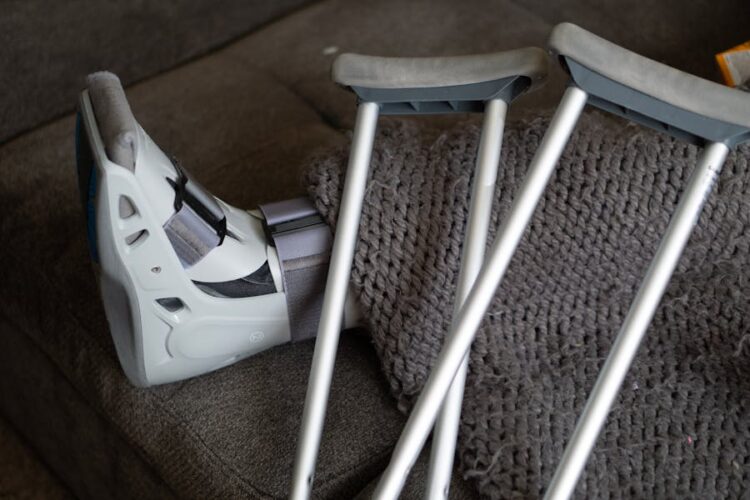It’s the responsibility of the employer to create a safe environment and equip staff to work in the often dangerous setting of the maritime industry. Nevertheless, accidents still happen. When they do, whether resulting from the negligence of the vessel owner, passenger, or crew, a victim can file a personal injury claim.
Thus, this article explores situations that warrant such a claim, what the law says, how to file a claim as an injured worker, and the possible compensation.
Legal Framework For Personal Injury Claims
The maritime environment causes minor to life-threatening injuries. The most common injuries are back injuries, burns, amputated fingers, drowning, asphyxiation, falls, frostbite, broken bones, and head injuries.
The laws that govern activities in the waters, from recreation to commerce, are under admiralty law, also called maritime law. Let us look at a few of these legislations.
Jones Act
As The Young Firm explains, this act covers seamen, including offshore workers in the oil and gas sectors. These employees can receive compensation for lost wages, medical expenses, and other burdens arising from injuries at the workplace. An injured worker can file the case in a federal state or district court and have a jury trial, and must prove an employer’s negligence.
Longshore and Harbor Workers’ Compensation Act (LHWCA)
Unlike the Jones Act, the LHWCA applies to non-seamen, such as shipbuilders, longshoremen, and harbor workers. It does not cover the vessel crew like the Jones Act. Where applicable, an injured employee can get compensation for medical expenses, rehabilitation, and lost wages. Further, a person filing this claim does not have to prove negligence.
Death on the High Seas Act (DOHSA)
This act differs from the two discussed above because it covers deaths arising from negligence or wrongful conduct. On top of that, the DOHSA allows the spouse, children, or other dependents to file for pecuniary losses, unlike the Jones Act, where the employee pursues compensation.
These plaintiffs, under DOHSA, should prove that negligence or the wrongful act of the vessel owner or other party caused the death. Further, the incident must have happened in the high seas, over three nautical miles from the shore.
Process of Filing a Personal Injury Claim
Here’s what to do:
Get Medical Assistance
If you’re at sea, you may receive first aid before the vessel heads to the port for you to receive medical care at a hospital. Severe cases may involve the U.S. Coast Guard to get you medical help as soon as possible. Keep receipts and records of all medical tests, as these will make up most of the evidence to support your claim.
File a Report
The next step is to report the accident to your employer. The LHWCA and Jones Act have strict deadlines for this report. You report an injury within 30 days under the LHWCA and seven days under the Jones Act. The report will contain details that help you prove the employer’s negligence. As such, the supervisor or other person responsible should document the incident accurately.
Get Legal Assistance
The last step is finding an attorney to help you file the claim. Firstly, given the complexity of maritime law, you want to be sure you’re filing the right claim. On top of that, the process of gathering evidence can be overwhelming, especially if you are already out of work or going through therapy. Further, you may be dealing with an uncooperative vessel owner who will limit your access to documents with information that proves their negligence.
Challenges in Maritime Personal Injury Claims
One of the challenges of filing these claims is proving negligence. The plaintiff needs to prove that the vessel owner or operator acted irresponsibly. For instance, they did not provide sufficient equipment, the crew was inadequate, or the crew did not have the right training. As such, the vessel owner’s negligence played a role in the maritime accident. It calls for extensive research and data collection as a plaintiff, regardless of the situation.
For instance, the vessel owner might be reluctant to let you gather data to support your claim. Further, you may fear losing your job when the vessel owner retaliates because you filed a claim.
In addition, a person filing a claim under the Jones Act must have documentation to prove their employment for the vessel owner as a permanent employee and must have worked for at least 30% of that time on their vessel.
This plaintiff must also provide accurate records of the financial loss or the psychological effects of the accident.
Calculating damages like the pain and suffering caused by the maritime accident is complex. Thus, to file a concrete claim, your lawyer will ask you to gather documents like hospital bills and a report from a physician expounding on your injuries, treatment, and therapy needed. In addition, there’s a time limit for filing this claim, so you should do it within three years.
Possible Compensation and Types of Damages
There are economic and non-economic damages. However, it depends on an individual case, the injuries sustained, and applicable laws. The economic damages include living expenses, medical bills, and lost wages. You may also get compensation for the inability to work in the future because of the injuries sustained.
Generally, you may get a higher compensation if the injuries sustained are severe. The non-economic compensation includes the pain and suffering caused by the incident, the psychological impact, and the inability to enjoy life because of the injuries sustained.
Sometimes, if there’s proof of gross negligence by the vessel owner or operator, the court may also award punitive damages.
Conclusion
There are several laws protecting maritime workers, and personal injury is one of the areas covered. Hence, a worker can file a claim against an employer, but depending on the applicable law, they may have to prove negligence.
The evidence to support the claim includes medical reports, eyewitness accounts, and the report filed through an employer. With sufficient evidence, a worker can get both economic and non-economic damages. In addition, if a worker passes on because of a maritime accident, the dependents can file for compensation under the DOHSA.










